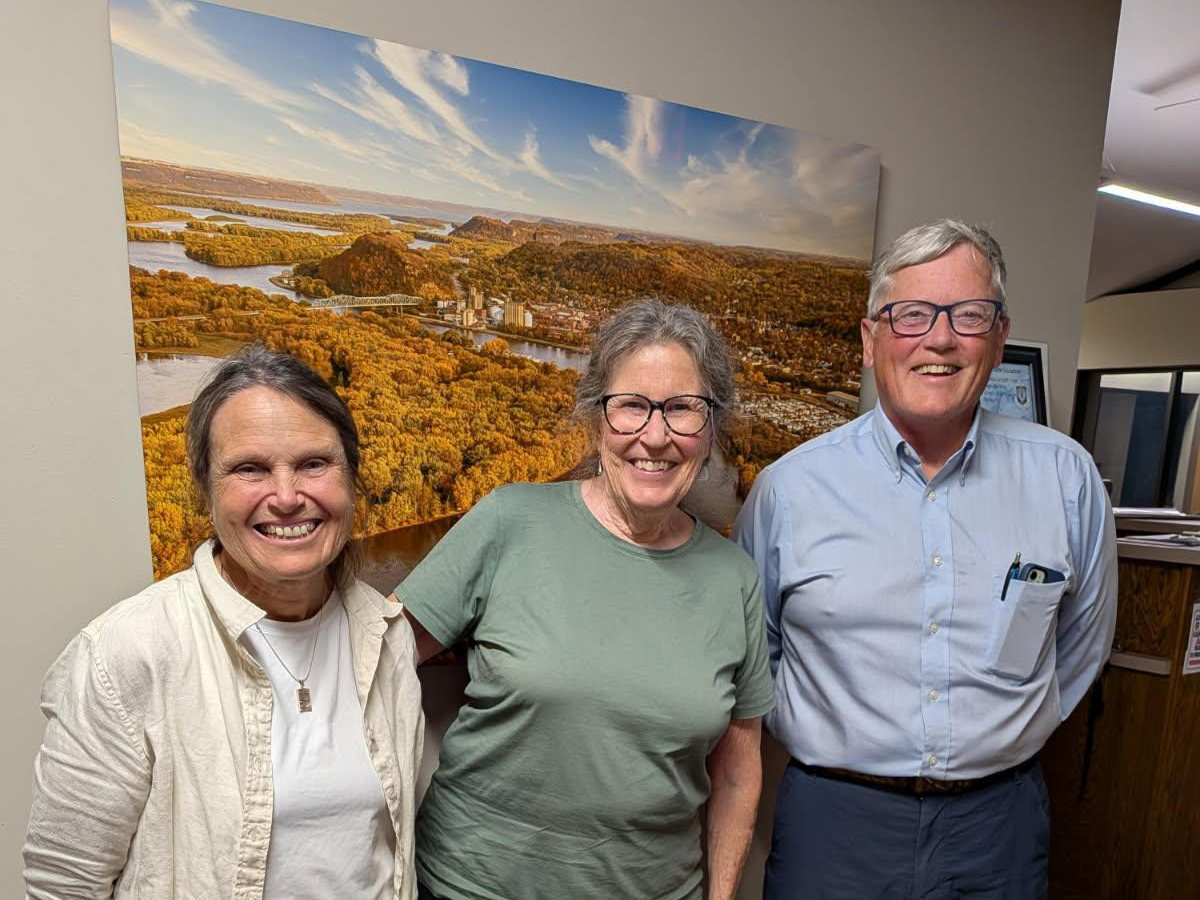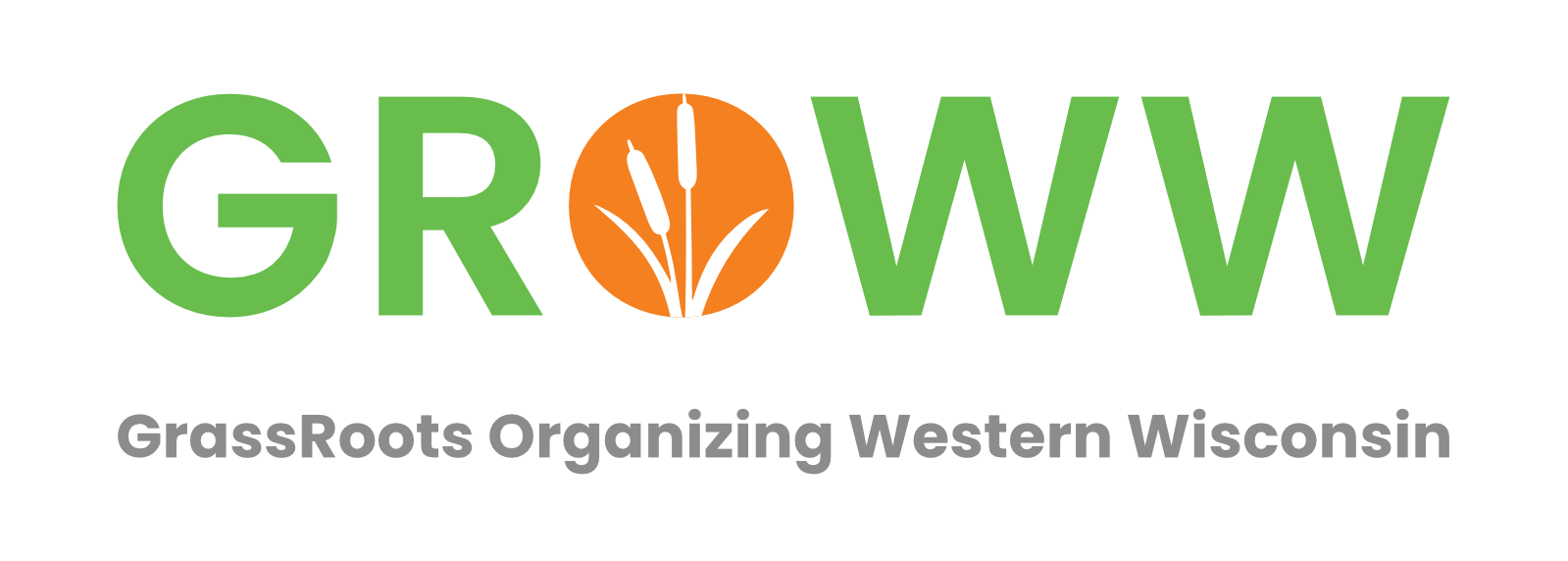The Town of Isabelle voted unanimously on Monday night to become the second town in the county with an Operations Ordinance for factory farms

Pierce County, Wis. — On Monday, September 15th, the town board in the Town of Isabelle in Pierce County unanimously passed an Operations Ordinance to ensure local oversight of massive factory farms. The decision came after 75 people packed the Tabor Lutheran Church at a public hearing the prior week to give near-unanimous support for adopting the ordinance.
Isabelle formed a study committee earlier this year to gather information and examine the impacts of large-scale factory farms. The committee recommended the town adopt an Operations Ordinance, which requires factory farms to obtain a town permit by submitting plans for how they will address various aspects of their operations. Those issues include road usage, air pollution, water usage, water quality, infectious diseases, carcass disposal, fire response and financial capacity to clean up if the operation closes. The decision made by the town board on Monday affirms the unanimous findings of the study committee.
Charlie Brown, a fifth-generation farmer in Isabelle, served on the study group “because for five generations, since 1853, my family has been able to drink the water from its well, and I would like to assure that another five generations are able to enjoy that right.” Brown presented groundwater data at the public hearing that showed that 67% of the land in the town ranged from moderately susceptible to highly susceptible to groundwater contamination, according to the Wisconsin DNR’s groundwater susceptibility modeling.
Local concerns about factory farms have grown significantly across the region since one such operation, Ridge Breeze Dairy in the Town of Salem, announced plans for a huge expansion, from 1,700 to 6,500 cows. Isabelle has now joined the Town of Maiden Rock in passing ordinances to give local residents the tools they need to protect their communities.
“This is about our water, our public health, our quality of life for all of us and for those who follow us,” said Maiden Rock resident Mary Anne Wise at the September 9th public hearing.
Fill Gaps in Community Protections and Pushing Back on the Factory Farm Take Over
As Wisconsin’s agriculture industry has become more concentrated, factory farms have put pressure on Isabelle and other rural communities, whose residents are deeply concerned about the harmful impacts of giant livestock operations, from heavy manure trucks tearing up roads to nitrates polluting wells and streams, and from noxious odors contaminating the air to large-scale fire hazards that put first responders at risk. Meanwhile, small family farms forced to shut down by corporate competitors tear holes in the fabric of rural communities. Every day between 2017 and 2022, at least one Wisconsin dairy farm was forced out of business.
“Isabelle’s town board listened to the residents of their town. Local people came together to make sure they have the power and oversight they need to keep their community safe and healthy as they face pressures from mega-dairies like Ridge Breeze. They know that existing protections are not good enough,” said Danny Akenson, an organizer for Grassroots Organizing Western Wisconsin (GROWW). “If existing protections were good enough, landowners wouldn’t have had their property listed by Ridge Breeze for manure spreading without their permission. If existing protections were good enough, a 4,000-hog facility near Mondovi would not have gone up in flames in 2019, leaving carcasses decomposing for days as the factory scrambled to find a place to dump them.”
Akenson said more Operations Ordinances must be adopted to protect western Wisconsin from massive livestock operations. Local GROWW members are organizing with their neighbors to put safeguards in place to protect their community from the impacts of livestock operations like Ridge Breeze Dairy.
Margaret Chesley, chair of Isabelle’s CAFO study group, said, “Without the ordinance, we may not have a say in what goes on or be able to mitigate a problem when it occurs. This is a reasonable, common-sense approach to basic issues that need to be addressed in the public interest of the environment, quality of life and the economics of the township.”
XXX
About GROWW
GROWW is a grassroots organization based in Western Wisconsin. Together, we work toward a future where we all make ends meet, live with dignity, and have a voice in shaping the decisions that impact us. To get connected or learn more about GROWW, visit us at GRO-WW.org, on Instagram at @GrowWisconsin, or on Facebook at Facebook.com/GROWWisconsin


No responses yet